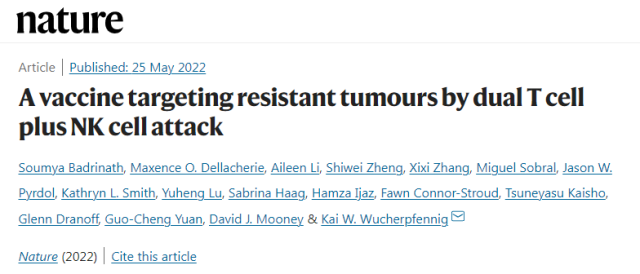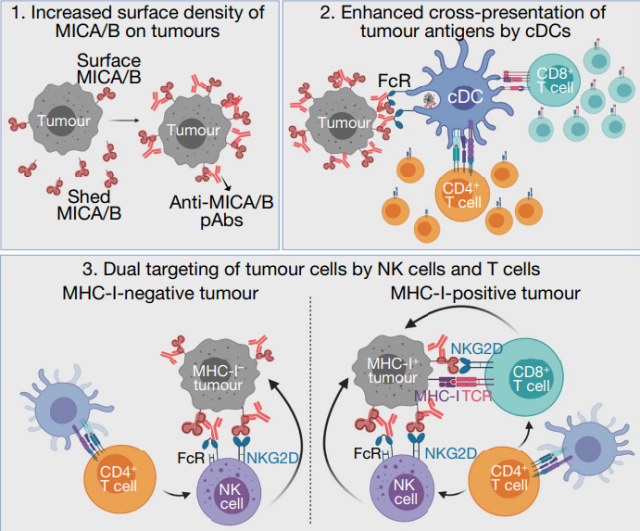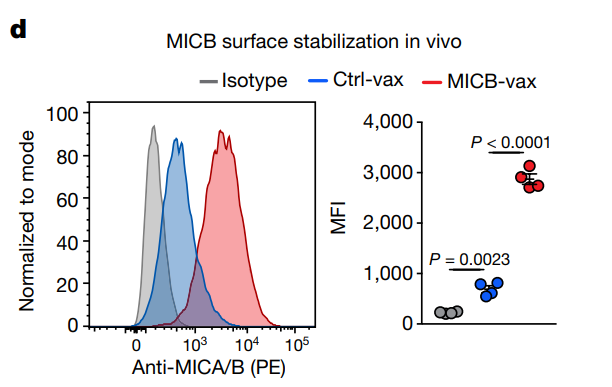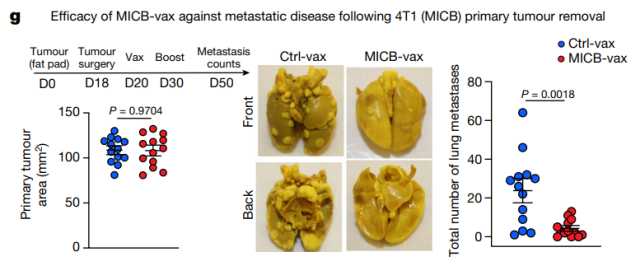Harvard University has developed a universal cancer vaccine
- Normal Liver Cells Found to Promote Cancer Metastasis to the Liver
- Nearly 80% Complete Remission: Breakthrough in ADC Anti-Tumor Treatment
- Vaccination Against Common Diseases May Prevent Dementia!
- New Alzheimer’s Disease (AD) Diagnosis and Staging Criteria
- Breakthrough in Alzheimer’s Disease: New Nasal Spray Halts Cognitive Decline by Targeting Toxic Protein
- Can the Tap Water at the Paris Olympics be Drunk Directly?
Harvard University has developed a universal cancer vaccine that may treat multiple cancers
- Should China be held legally responsible for the US’s $18 trillion COVID losses?
- CT Radiation Exposure Linked to Blood Cancer in Children and Adolescents
- FDA has mandated a top-level black box warning for all marketed CAR-T therapies
- Can people with high blood pressure eat peanuts?
- What is the difference between dopamine and dobutamine?
- How long can the patient live after heart stent surgery?
Nature: Harvard University has developed a universal cancer vaccine that may treat multiple cancers.
Cancer is a major public health problem in the world. In recent years, due to factors such as diet, environment, and population aging, the incidence of cancer worldwide has continued to increase, and cancer has become an increasingly prominent cause of death.
According to the latest global cancer data for 2020 released by the International Agency for Research on Cancer (IARC), China has become a veritable cancer powerhouse.
As a country with a large population in the world, China’s cancer data is not optimistic. Whether it is the number of new cases or the number of deaths, China ranks first in the world .
The tools available to treat cancer so far are chemotherapy, radiation therapy and surgery. On the way to treating cancer, medical researchers have been exploring vaccines to fight cancer.
For example, the development of vaccines against HPV-related diseases has reduced the risk of cervical cancer and other types of cancer.
Most of these vaccines are therapeutic vaccines, which target specific surface proteins expressed by tumor cells. Once these surface proteins are mutated, the protection of the vaccine will also decrease.
Recently, researchers from Harvard University in the United States published a research paper entitled “A vaccine targeting resistant tumors by dual T cell plus NK cell attack” in the top international journal ” Nature “.
Researchers have developed a new and more general vaccine, designing a brand-new cancer vaccine that helps the immune system eliminate tumor defenses to destroy cancer, and can induce different T cells and natural killer cells to attack in concert, so that Can play a broader immune function.
The researchers believe that the vaccine could be used to treat a variety of cancers .

In this study, the researchers developed a conceptual new cancer vaccine that targets tumor immune evasion mechanisms.
The vaccine targets the MICA and MICB stress proteins on the surface of tumors, which are produced in large quantities when the body has too much DNA damage due to cancer but are barely detectable in healthy cells.
The vaccine works by eliminating one of the main defense strategies used by tumors.
Vaccine-induced antibodies inhibit tumor cells from dividing MICA and MICB, reducing their likelihood of activating immune cells to evade immune attack .
When the MICA and MICB proteins attached to the tumor surface were shed, the tumor was free to grow.
At the same time, it enhances the cytotoxic function of natural killer cells, increases the cross-presentation of T cells, and accelerates the immune system to eliminate tumors .
The vaccine disrupts this cutting process by increasing the density of proteins on the surface of tumor cells, which the researchers call “provoking protective immunity . “

MICA/B Vaccine Design
Vaccination experiments in mice transgenic for MICB, similar to human cancer cells, showed that the vaccinated mice inhibited MICB shedding to undetectable levels and significantly increased the cell surface protein density of MICB in melanoma cells, the vaccine Shows remarkable efficacy in controlling melanoma cells and lymphoma cells expressing MICB or MICA .

MICB Levels on Tumor Cell Surfaces
To assess vaccine-induced immune memory, mice were rechallenged with melanoma 4 months after the initial immunization and were found to be completely protected.
In addition, the researchers tested prevention of tumor metastasis and recurrence by immunizing mice after surgical removal of the primary tumor.
The study used two models of spontaneous metastasis, a melanoma model and a triple-negative breast cancer model.
The study showed that the vaccine significantly reduced the number of lung metastases detected in both models more than 1 month after surgery , and histological analysis of lung sections further showed that the vaccine resulted in a significant reduction in the number and size of metastases compared with the control group.

Vaccine Efficacy in Two Models of Spontaneous Metastasis
Similarly, the researchers tested the vaccine safety and immunogenicity in the nonhuman primate rhesus monkeys.
The study showed that all four rhesus monkeys produced anti-MICA and anti-MICB antibodies after immunization, and with the subsequent booster immunization, the titer increased by 100-1000 times, and no clinical side effects were found after immunization, which is a guarantee for the safety of the vaccine Sex provides preliminary evidence.
The researchers believe that the vaccine could be used to treat multiple cancers in patients with multiple cancers .
The researchers note that there are indications that the vaccine works better when combined with radiation therapy.
They are now designing a clinical trial that will test the new vaccine in humans.
Paper link:
https://doi.org/10.1038/s41586-022-04772-4
Harvard University has developed a universal cancer vaccine that may treat multiple cancers
(source:internet, reference only)
Disclaimer of medicaltrend.org
Important Note: The information provided is for informational purposes only and should not be considered as medical advice.



